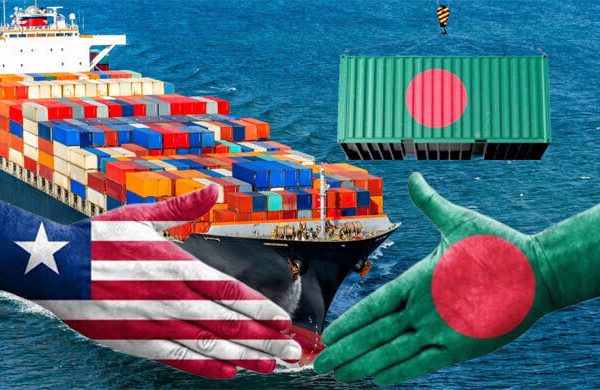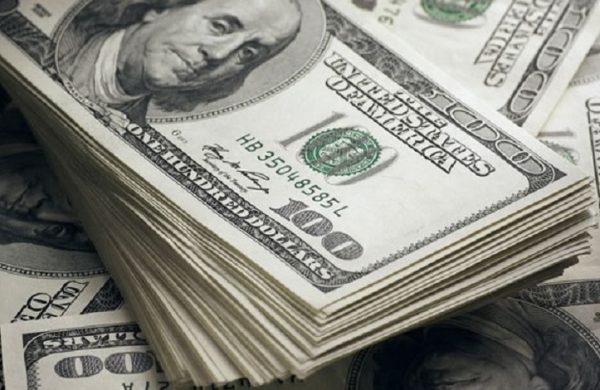Bangladesh opts for import ‘incentives’ to win Trump’s support
- Update Time : Monday, July 28, 2025

TDS Desk:
As the clock ticks toward the August 1 deadline for a punitive 35 per cent US counter-tariff on Bangladeshi exports, Dhaka is making a high-stakes diplomatic push – offering a wave of major purchases from the United States in hopes of swaying President Donald Trump’s administration.
Bangladesh is preparing for the third round of in-person negotiations with the US Trade Representative (USTR), scheduled for July 29-30 (8:00pm-10:30pm Bangladesh time).
Ahead of the talks, the interim government has fast-tracked several high-value import deals with the US – framing them as “incentives” aimed at reducing the bilateral trade deficit and influencing the outcome of the tariff negotiations.
A DELEGATION DEPARTS WITH HIGH HOPES
A high-level Bangladeshi delegation, led by Commerce Adviser Sheikh Bashir Uddin, is set to depart Dhaka on Monday, July 28, aboard a 11:30pm flight. The team includes: National Security Adviser Dr Khalilur Rahman, Commerce Secretary Mahbubur Rahman, and Additional Secretary of the Commerce Ministry Nazneen Kausar Chowdhury.
Their mission: convince the US that Bangladesh is serious about balancing trade – before the new tariffs take effect.
MAJOR US PURCHASES ON THE TABLE
To demonstrate goodwill, Bangladesh has announced or finalized several significant procurement initiatives:
25 BOEING AIRCRAFT
Bangladesh plans to purchase 25 commercial aircraft from Boeing, a deal valued at over Tk 30,000 crore ($3.6 billion). This would be one of the largest aviation deals in the country’s history and a major boost for US aerospace exports.
3.5 MILLION TONNES OF US WHEAT
For the first time at the government level, Bangladesh has signed an agreement with the US Wheat Exporters Association to import 7,00,000 tonnes of wheat annually for the next five years – totalling 3.5 million tonnes.
Previously, wheat imports from the US were limited to private-sector purchases (around 9 million tonnes/year). This new state-level commitment marks a strategic shift.
SOYBEAN OIL AND COTTON
Soybean oil: Private traders are in talks with US exporters to increase imports, aiming to reduce Bangladesh’s reliance on other suppliers.
Cotton: The Bangladesh Textile Mills Association (BTMA) has written to Gary Adams, CEO of the US National Cotton Council (NCCA), pledging to quadruple or even quintuple cotton imports from the US.
BTMA President Showkat Aziz Russell said: “Currently, only 12 per cent of Bangladesh’s imported yarn comes from the US. With increased cotton imports, we can raise that to 40-50 per cent. We’re even planning a designated central warehouse to streamline US yarn storage and distribution.”
Cotton imports from the US once reached $1.8 billion annually but have since declined. Restoring that level could reduce the trade deficit by $1 billion.
LNG AND OTHER GOODS
Bangladesh is also exploring increased imports of liquefied natural gas (LNG), aircraft parts, and agricultural products – all areas where the US sees export potential.
THE TARIFF THREAT: FROM 15 PER CENT TO 50 PER CENT
Currently, Bangladeshi goods enter the US market with an average tariff of 15 per cent. But under Trump’s April 2 announcement of reciprocal tariffs, Bangladesh faces a 35 per cent counter-tariff effective August 1. That would push the total effective rate to 50 per cent, threatening the competitiveness of key sectors, especially ready-made garments, which account for over $8 billion in annual US exports.
Despite two earlier rounds of talks, Bangladesh failed to secure a rollback. Worse, the government did not disclose the conditions set by the US, citing a non-disclosure agreement (NDA) sparking criticism for lack of transparency.
Now, with the third round imminent, Dhaka hopes its “incentive strategy” will pay off.
GOVT OPTIMISM VS PRIVATE SECTOR SCEPTICISM
Commerce Secretary Mahbubur Rahman expressed cautious optimism: “We’ve taken bold initiatives to boost US imports. We’ll present them in the talks. We’re hopeful for a positive outcome.”
But many in the private sector and economic community remain unconvinced.
BGMEA President Mahmud Hasan Khan criticised the government’s delayed response: “Businesses urged early appointment of US-based lobbyists to advocate clearly. Instead, informal attempts came at the last minute – too late to make an impact.”
SMM Khaled, Managing Director of Snotex Group, warned: “If we can match the tariff rates of Vietnam or India, we can survive. But time is running out. Without strong, visible diplomacy now, the foundation of our largest export sector could collapse.”
Dr Selim Raihan, economist and director at SANEM, added: “The tariff issue isn’t just about trade, it’s political. The government isn’t being transparent about the deeper challenges. That lack of clarity is eroding confidence.”
A HIGH-STAKES GAMBLE
Bangladesh is playing a dangerous game: using state-driven purchases to influence a protectionist US administration. While the strategy may appeal to Trump’s transactional worldview, experts question its long-term sustainability.
Now, all eyes are on Washington. On July 29, the delegation will walk into the USTR office with a simple message: We’re buying. Please lower the tariffs.















